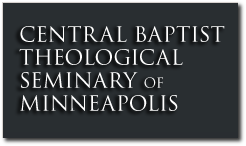Answering the 95 Theses Against Dispensationalism, Part 7
 Republished with permission from Dr. Reluctant. In this series, Dr. Henebury responds to a collection of criticisms of dispensationalism entitled “95 Theses against Dispensationalism” written by a group called “The Nicene Council.” Read parts 1, 2, 3, 4, 5, and 6.
Republished with permission from Dr. Reluctant. In this series, Dr. Henebury responds to a collection of criticisms of dispensationalism entitled “95 Theses against Dispensationalism” written by a group called “The Nicene Council.” Read parts 1, 2, 3, 4, 5, and 6.
Thesis 31
Despite the dispensationalists’ strong commitment to the “plain interpretation” of Scripture (Charles Ryrie) and its dependence on Daniel’s Seventy Weeks as “of major importance to premillennialism” (John Walvoord), they have to insert into the otherwise chronological progress of the singular period of “Seventy Weeks” (Dan 9:24) a gap in order to make their system work; and that gap is already four times longer than the whole Seventy Weeks (490 year) period.
Response
The 70 Weeks prophecy is not at all unusual in containing a long time-gap between one aspect of its fulfillment and its final consummation. As with so many other OT prophetic passages, one often finds predictions of the first and second advents sandwiched together without any apparent time lapse. An example is Micah 5:2:
But you, Bethlehem Ephrathah, Though you are little among the thousands of Judah, Yet out of you shall come forth to Me The One to be Ruler in Israel, Whose goings forth are from of old, From everlasting.
Nobody doubts the literal truth of this prophecy when it speaks about (a) the place of Messiah’s birth, or, (b) the pre-existence of Messiah. But there is a hermeneutical decision that has to be made about the prediction regarding, “the one to be Ruler in Israel.” Those who prefer what might be called the “selective-allegorical” approach will say that Christ is now ruling spiritually over the Church, the “New spiritual Israel.” Dispensationalists will look for a more literal interpretation of this part of the prophecy in line with the two other parts. They are encouraged to do this because this is not the only prophecy of an actual Messianic Rule over ethnic Israel; a prophecy that is yet to be fulfilled (cf. Isa. 9:6-7; Jer. 33:14-17; Lk. 1:31-33).
 Republished with permission (and unedited) from
Republished with permission (and unedited) from 
Discussion